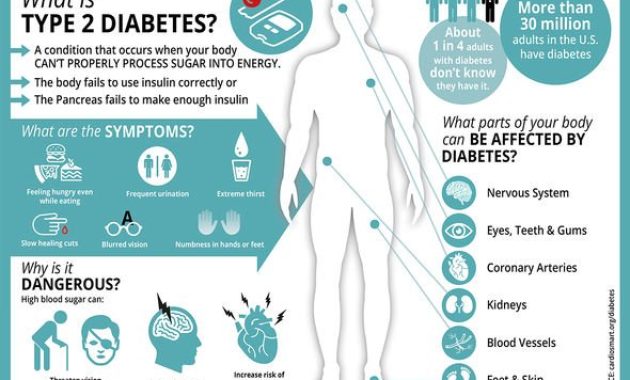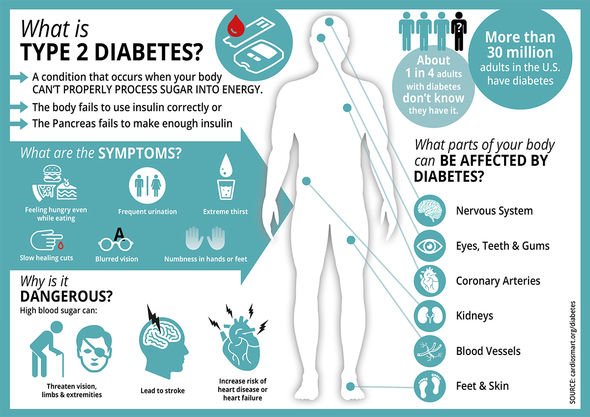
How to Handle Diabetes Without Feeling Constantly Tired: A Comprehensive Guide
Living with diabetes can be challenging. It requires constant monitoring and management. One of the most common complaints among people with diabetes is persistent fatigue. This tiredness can significantly impact quality of life. It affects daily activities, work performance, and social interactions. This article explores how to handle diabetes without feeling constantly tired. We will delve into the causes of fatigue, effective management strategies, and lifestyle adjustments. These adjustments can help you regain energy and vitality.
Understanding the Link Between Diabetes and Fatigue
Diabetes, both type 1 and type 2, affects how the body uses glucose. Glucose is the primary source of energy. When blood sugar levels are consistently high, the body’s cells cannot effectively use glucose. This leads to a lack of energy. Several factors contribute to fatigue in people with diabetes. These include:
- High Blood Sugar (Hyperglycemia): Excess glucose in the bloodstream can cause various symptoms. These include increased urination, thirst, and fatigue. The body struggles to process the excess sugar. This leads to energy depletion.
- Low Blood Sugar (Hypoglycemia): Low blood sugar levels can also cause fatigue. This often occurs after taking too much insulin or skipping meals. Other symptoms include shakiness, dizziness, and confusion.
- Dehydration: High blood sugar levels can lead to increased urination. This can cause dehydration. Dehydration contributes to fatigue and other complications.
- Poor Sleep: Diabetes can disrupt sleep patterns. This can be due to frequent urination at night. It can also be due to pain or discomfort from neuropathy. Insufficient sleep further exacerbates fatigue.
- Complications: Long-term diabetes complications like neuropathy and cardiovascular disease can cause fatigue. These conditions can impact energy levels and overall well-being.
Effective Strategies for Managing Fatigue
Managing diabetes effectively is crucial for combating fatigue. Several strategies can help you maintain healthy energy levels. These include:
Blood Sugar Control
Maintaining stable blood sugar levels is fundamental. Regular monitoring is essential. Check your blood sugar levels as recommended by your healthcare provider. Use a glucose meter to track your levels. Keep a log of your readings. This helps identify patterns and adjust treatment as needed. Work closely with your doctor to create a personalized treatment plan. This plan can optimize blood sugar control. This will help minimize fatigue.
Dietary Adjustments
Diet plays a vital role in managing diabetes and fatigue. Focus on a balanced diet. Include complex carbohydrates, lean proteins, and healthy fats. Avoid sugary drinks and processed foods. These can cause rapid spikes in blood sugar. Eat regular meals and snacks throughout the day. This helps prevent blood sugar fluctuations. Consider consulting a registered dietitian. They can help you create a meal plan. This plan will meet your nutritional needs and support your energy levels. The goal is to handle diabetes better.
Regular Physical Activity
Exercise is beneficial for managing diabetes and boosting energy. Aim for at least 150 minutes of moderate-intensity aerobic exercise per week. This includes activities like brisk walking, swimming, or cycling. Also, incorporate strength training exercises. This can improve insulin sensitivity and overall fitness. Exercise can also help reduce fatigue. It improves sleep quality and enhances mood. Always consult your doctor before starting a new exercise program. This is especially important if you have any underlying health conditions.
Proper Hydration
Staying hydrated is crucial for people with diabetes. Drink plenty of water throughout the day. Avoid sugary drinks. These can worsen blood sugar control. Carry a water bottle with you. This will remind you to drink regularly. Dehydration can worsen fatigue. Proper hydration supports overall health and well-being.
Adequate Sleep
Prioritize sleep to combat fatigue. Aim for seven to nine hours of quality sleep each night. Establish a regular sleep schedule. Create a relaxing bedtime routine. Avoid caffeine and alcohol before bed. Make sure your bedroom is dark, quiet, and cool. If you have trouble sleeping, talk to your doctor. They can address any underlying sleep disorders. These can contribute to fatigue.
Medication Management
Take your diabetes medications as prescribed by your doctor. Understand how your medications affect your blood sugar levels. Be aware of the potential side effects. If you experience fatigue or other concerning symptoms, discuss them with your doctor. They may adjust your medication or dosage to better manage your condition. This is an important part of how to handle diabetes effectively.
Stress Management
Stress can worsen fatigue and blood sugar control. Find healthy ways to manage stress. This can include exercise, meditation, yoga, or spending time in nature. Practice relaxation techniques. These can help reduce stress levels. Consider talking to a therapist or counselor. They can provide support and guidance. This can help you manage stress. This is key for managing diabetes and reducing fatigue.
Lifestyle Adjustments for Enhanced Energy
In addition to the strategies above, some lifestyle adjustments can further enhance your energy levels. These adjustments will help you handle diabetes more effectively.
Meal Timing and Portion Control
Eat meals and snacks at consistent times throughout the day. This helps prevent blood sugar fluctuations. Pay attention to portion sizes. Overeating can lead to post-meal fatigue. Use smaller plates. This can help you control your portion sizes. This is a key strategy in how to handle diabetes.
Limit Alcohol Consumption
Alcohol can affect blood sugar levels and worsen fatigue. If you choose to drink alcohol, do so in moderation. This means one drink per day for women and two drinks per day for men. Drink alcohol with meals. This can help prevent low blood sugar. Always monitor your blood sugar levels after drinking alcohol. This can help you understand the impact on your body.
Quit Smoking
Smoking can worsen diabetes complications and fatigue. If you smoke, quit. Seek support from your doctor. They can provide resources and strategies. These will help you quit smoking. Quitting smoking can improve your overall health and energy levels.
Regular Health Check-ups
Attend regular check-ups with your healthcare provider. This includes your doctor, endocrinologist, and other specialists. These check-ups are important. They help monitor your diabetes and address any complications early. Regular check-ups can also help identify and treat underlying causes of fatigue. This is an important part of how to handle diabetes successfully.
When to Seek Medical Advice
If you experience persistent fatigue despite implementing these strategies, seek medical advice. Consult your doctor if you experience any of the following:
- Unexplained fatigue that lasts for several weeks
- Fatigue accompanied by other symptoms. These include unexplained weight loss, changes in vision, or frequent infections
- Difficulty concentrating or memory problems
- Severe fatigue that interferes with daily activities
Your doctor can assess your condition. They can rule out other potential causes of fatigue. They can also adjust your treatment plan. They will help you manage your diabetes and improve your energy levels. Early intervention is crucial in learning how to handle diabetes.
Conclusion: Taking Charge of Your Energy Levels
Managing diabetes and combating fatigue requires a proactive approach. By understanding the causes of fatigue, implementing effective management strategies, and making lifestyle adjustments, you can significantly improve your energy levels and quality of life. Remember to monitor your blood sugar levels regularly, follow your treatment plan, and communicate with your healthcare provider. This is how to handle diabetes successfully. Take control of your health and embrace a more energetic and fulfilling life. The journey of handling diabetes is ongoing. Consistent effort and dedication will yield positive results. You can handle diabetes and live a full life.
[See also: Related Article Titles]

